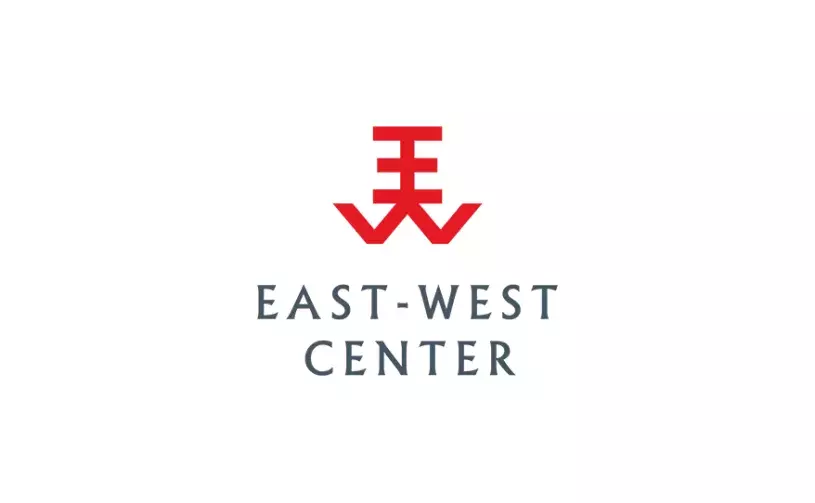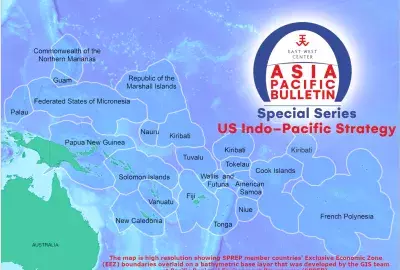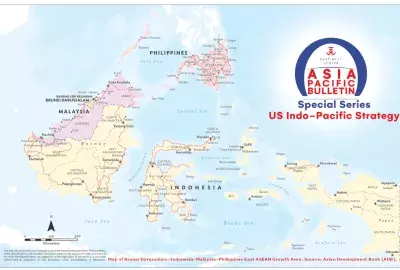Error message

|
Daniel Wertz, Program Manager at the National Committee on North Korea, explains that “Pyongyang has established diplomatic relations with every ASEAN country, has been a member of the ASEAN Regional Forum since 2000, and has embassies in every country in the region except [three].” |
When Donald Trump and Kim Jong Un meet in Vietnam later this month, it will mark Kim’s second trip to Southeast Asia in less than a year. That in itself is something of a noteworthy feat, considering it had been over half a century since the last time a North Korean leader traveled to the region. The choice of venue also gives a bit of vindication to “the ASEAN way” – a preference among the countries of the region for neutrality and non-alignment in international affairs, coupled with a willingness to use their good offices to help resolve international disputes.
A recent poll of Southeast Asian leaders from the fields of academia, government, business, and civil society revealed a marked preference for engaging, rather than pressuring, North Korea. A majority of those polled (60.8%, in a format allowing for multiple answers) expressed a preference for continued bilateral and multilateral engagement between ASEAN countries and North Korea. The second most popular response, with the support of 43.5% of respondents, emphasized ASEAN’s role as “an active honest broker.” Only 24.9% expressed support for “upholding sanctions until the United Nations Security Council lifts them.”
ASEAN’s reputation as a prospective friend to all has a solid foundation, but North Korea’s reputation as a hermit kingdom rests on shakier ground. Pyongyang has established diplomatic relations with every ASEAN country, has been a member of the ASEAN Regional Forum since 2000, and has embassies in every country in the region except for the Philippines, Brunei, and East Timor. A dataset compiled by the North Korea in the World project indicates that Pyongyang has sent 95 high-level diplomatic delegations to Southeast Asia over the past two decades, accounting for over a quarter of the known travel of top North Korean officials.
Reported trade figures between North Korea and ASEAN countries are relatively modest, topping out at over $400 million in annual bilateral trade in the mid-2000s before declining – gradually, then suddenly – with the onset of UN sanctions. Nonetheless, the region has continued to provide North Korea with opportunities to reduce its economic dependence on China. Southeast Asian firms have been among the few non-Chinese businesses brave enough to invest in North Korea: Thailand’s Loxley Pacific has built internet infrastructure in the country, while a chain of “Singapore shops” have sold household items and sanctioned luxury goods to well-heeled Pyongyangites. A Singapore-based NGO, Choson Exchange, has also trained over 2,000 North Koreans in the basics of business and entrepreneurship, encouraging the country’s marketization.
The murder of Kim Jong Un’s half-brother Kim Jong Nam in a Malaysian airport in February 2017 hearkened back to some of North Korea’s more malign activities in the region, including its suspected abductions of Thai, Singaporean, and Malaysian nationals in the late 1970s and a bloody 1983 attempt to assassinate South Korean President Chun Doo-hwan in Rangoon. The incident also put a spotlight on two Kuala Lumpur-based North Korean front companies active in international arms sales, as well as the presence of about 300 North Korean laborers working in dangerous conditions in the Malaysian state of Sarawak.
Coinciding with a wave of North Korean missile and nuclear tests, as well as a U.S.-led pressure campaign and tough new UN sanctions, Kim Jong Nam’s killing came at a nadir in North Korea’s relations throughout the region. In October 2016, a top North Korean official was forced to cancel a planned trip to Indonesia to meet with former President Megawati Sukarnoputri. In September 2017, the Philippines – which had been North Korea’s fifth-largest trade partner the previous year – announced that it would suspend trade relations with Pyongyang. Reported trade between North Korea and ASEAN countries dropped by nearly 80% in 2017, totaling a meager $28.8 million.
But even as North Korea’s ties to Southeast Asia became strained, they were never completely broken. North Korea has reportedly continued to use its business ties in the region to evade sanctions and launder money through the international financial system, confounding attempts to put “maximum pressure” on the regime. A North Korea-linked museum and restaurant chain in Cambodia have remained open, reflecting strong bilateral ties between the countries rooted in Kim Il Sung’s personal friendship with King Norodom Sihanouk. An August 2017 ASEAN Regional Forum meeting rebuked North Korea’s long-range missile tests, but a U.S. proposal to suspend Pyongyang from the Forum fell flat. Even as Malaysia expelled North Korea’s ambassador to Kuala Lumpur and banned its citizens from traveling to North Korea in the wake of the airport killing, it did not fully break diplomatic ties with Pyongyang.
Kim Jong Un’s summit meeting with Donald Trump in Singapore appears to have marked a turning point for the region’s approach to Korean Peninsula issues, letting ASEAN play the role of being a trusted intermediary rather than a front in the global pressure campaign. The day before the summit, Singaporean Foreign Minister Vivian Balakrishnan went with Kim for a tour of the city-state, smiling for a selfie with the North Korean leader as they went for an evening stroll along the waterfront. As the summit convened, newly-elected Malaysian Prime Minister Mahathir Mohamad expressed his interest in re-opening Malaysia’s embassy in Pyongyang.
This shift in attitude has been sustained beyond the media frenzy of the summit. Philippine President Rodrigo Duterte, who in August 2017 had called Kim Jong Un a “fool” who was “playing with dangerous toys,” pivoted to naming Kim as a “hero of everybody” and his “idol” – someone with whom he could share tips on dealing with enemies. Pyongyang also took steps to repair its relations with Vietnam: Foreign Minister Ri Yong Ho traveled to Hanoi in November 2018, and North Korean officials reportedly “expressed regret” that a Vietnamese citizen had been (possibly unwittingly) linked to Kim Jong Nam’s murder. In November 2018, Indonesian President Joko Widodo suggested that South Korean President Moon Jae-in invite Kim Jong Un to the 2019 ASEAN-ROK Summit in Seoul, a proposal that Moon said he would “actively consider.”
As inter-Korean dialogue and talks between Washington and Pyongyang on denuclearization and the normalization of relations move forward, the nations of Southeast Asia could be helpful in many ways: providing neutral ground for dialogue; showcasing the potential of economic reforms; and quietly encouraging North Korea to take a different path. Yet, if the diplomatic process fails to make headway, the United States may face a major challenge in persuading the ASEAN countries to sustain sanctions and pressure against North Korea indefinitely.
|
Daniel Wertz, Program Manager at the National Committee on North Korea, explains that “Pyongyang has established diplomatic relations with every ASEAN country, has been a member of the ASEAN Regional Forum since 2000, and has embassies in every country in the region except [three].” |
When Donald Trump and Kim Jong Un meet in Vietnam later this month, it will mark Kim’s second trip to Southeast Asia in less than a year. That in itself is something of a noteworthy feat, considering it had been over half a century since the last time a North Korean leader traveled to the region. The choice of venue also gives a bit of vindication to “the ASEAN way” – a preference among the countries of the region for neutrality and non-alignment in international affairs, coupled with a willingness to use their good offices to help resolve international disputes.
A recent poll of Southeast Asian leaders from the fields of academia, government, business, and civil society revealed a marked preference for engaging, rather than pressuring, North Korea. A majority of those polled (60.8%, in a format allowing for multiple answers) expressed a preference for continued bilateral and multilateral engagement between ASEAN countries and North Korea. The second most popular response, with the support of 43.5% of respondents, emphasized ASEAN’s role as “an active honest broker.” Only 24.9% expressed support for “upholding sanctions until the United Nations Security Council lifts them.”
ASEAN’s reputation as a prospective friend to all has a solid foundation, but North Korea’s reputation as a hermit kingdom rests on shakier ground. Pyongyang has established diplomatic relations with every ASEAN country, has been a member of the ASEAN Regional Forum since 2000, and has embassies in every country in the region except for the Philippines, Brunei, and East Timor. A dataset compiled by the North Korea in the World project indicates that Pyongyang has sent 95 high-level diplomatic delegations to Southeast Asia over the past two decades, accounting for over a quarter of the known travel of top North Korean officials.
Reported trade figures between North Korea and ASEAN countries are relatively modest, topping out at over $400 million in annual bilateral trade in the mid-2000s before declining – gradually, then suddenly – with the onset of UN sanctions. Nonetheless, the region has continued to provide North Korea with opportunities to reduce its economic dependence on China. Southeast Asian firms have been among the few non-Chinese businesses brave enough to invest in North Korea: Thailand’s Loxley Pacific has built internet infrastructure in the country, while a chain of “Singapore shops” have sold household items and sanctioned luxury goods to well-heeled Pyongyangites. A Singapore-based NGO, Choson Exchange, has also trained over 2,000 North Koreans in the basics of business and entrepreneurship, encouraging the country’s marketization.
The murder of Kim Jong Un’s half-brother Kim Jong Nam in a Malaysian airport in February 2017 hearkened back to some of North Korea’s more malign activities in the region, including its suspected abductions of Thai, Singaporean, and Malaysian nationals in the late 1970s and a bloody 1983 attempt to assassinate South Korean President Chun Doo-hwan in Rangoon. The incident also put a spotlight on two Kuala Lumpur-based North Korean front companies active in international arms sales, as well as the presence of about 300 North Korean laborers working in dangerous conditions in the Malaysian state of Sarawak.
Coinciding with a wave of North Korean missile and nuclear tests, as well as a U.S.-led pressure campaign and tough new UN sanctions, Kim Jong Nam’s killing came at a nadir in North Korea’s relations throughout the region. In October 2016, a top North Korean official was forced to cancel a planned trip to Indonesia to meet with former President Megawati Sukarnoputri. In September 2017, the Philippines – which had been North Korea’s fifth-largest trade partner the previous year – announced that it would suspend trade relations with Pyongyang. Reported trade between North Korea and ASEAN countries dropped by nearly 80% in 2017, totaling a meager $28.8 million.
But even as North Korea’s ties to Southeast Asia became strained, they were never completely broken. North Korea has reportedly continued to use its business ties in the region to evade sanctions and launder money through the international financial system, confounding attempts to put “maximum pressure” on the regime. A North Korea-linked museum and restaurant chain in Cambodia have remained open, reflecting strong bilateral ties between the countries rooted in Kim Il Sung’s personal friendship with King Norodom Sihanouk. An August 2017 ASEAN Regional Forum meeting rebuked North Korea’s long-range missile tests, but a U.S. proposal to suspend Pyongyang from the Forum fell flat. Even as Malaysia expelled North Korea’s ambassador to Kuala Lumpur and banned its citizens from traveling to North Korea in the wake of the airport killing, it did not fully break diplomatic ties with Pyongyang.
Kim Jong Un’s summit meeting with Donald Trump in Singapore appears to have marked a turning point for the region’s approach to Korean Peninsula issues, letting ASEAN play the role of being a trusted intermediary rather than a front in the global pressure campaign. The day before the summit, Singaporean Foreign Minister Vivian Balakrishnan went with Kim for a tour of the city-state, smiling for a selfie with the North Korean leader as they went for an evening stroll along the waterfront. As the summit convened, newly-elected Malaysian Prime Minister Mahathir Mohamad expressed his interest in re-opening Malaysia’s embassy in Pyongyang.
This shift in attitude has been sustained beyond the media frenzy of the summit. Philippine President Rodrigo Duterte, who in August 2017 had called Kim Jong Un a “fool” who was “playing with dangerous toys,” pivoted to naming Kim as a “hero of everybody” and his “idol” – someone with whom he could share tips on dealing with enemies. Pyongyang also took steps to repair its relations with Vietnam: Foreign Minister Ri Yong Ho traveled to Hanoi in November 2018, and North Korean officials reportedly “expressed regret” that a Vietnamese citizen had been (possibly unwittingly) linked to Kim Jong Nam’s murder. In November 2018, Indonesian President Joko Widodo suggested that South Korean President Moon Jae-in invite Kim Jong Un to the 2019 ASEAN-ROK Summit in Seoul, a proposal that Moon said he would “actively consider.”
As inter-Korean dialogue and talks between Washington and Pyongyang on denuclearization and the normalization of relations move forward, the nations of Southeast Asia could be helpful in many ways: providing neutral ground for dialogue; showcasing the potential of economic reforms; and quietly encouraging North Korea to take a different path. Yet, if the diplomatic process fails to make headway, the United States may face a major challenge in persuading the ASEAN countries to sustain sanctions and pressure against North Korea indefinitely.







